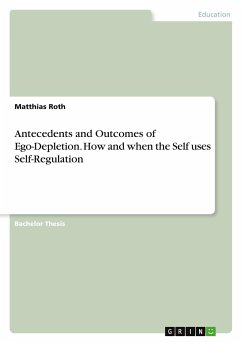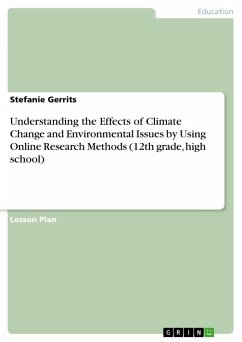Bachelor Thesis from the year 2018 in the subject Didactics - Business economics, Economic Pedagogy, grade: 1,7, University of Mannheim, language: English, abstract: This thesis tries to achieve a better understanding of how and when the self uses self-regulation and why it breaks down some times. Self-regulatory success is related to enabling people to delay gratification and thus to reach long-term goals. In contrast, self-regulatory failure is associated with smoking, crime, divorces, depression, obsessive thoughts and school underachievement. Responsible for such acts of volition? The Self.Over the past two decades, a growing body of social psychology research has examined how all these favourable or maladaptive outcomes are related. Baumeister et al. (1998) concentrated on the "controlling aspect of the self" and suggested that all acts of volition draw on a limited resource. Making use of this resource for self-regulatory responses means to deplete it, which indicates to have less of it for the following task involving self-regulation. Muraven, Tice, and Baumeister (1998) proposed a strength model to explain the hypothesis of regulatory depletion.A large number of studies can be traced back to these antecedents and brought supporting evidence. However, in recent years, this paradigm has been questioned. This thesis provides an overview of how the research has progressed, from the roots to the present day. In the next section, the most important terms are defined and related. In a literature review, evidence for and against the underlying theories by visiting many empirical findings from different spheres is presented and linked to the theory. The thesis is completed by implications for marketers how to make use of the findings to boost sales. At the end, several limitations and possibilities for future research are exhibited.








